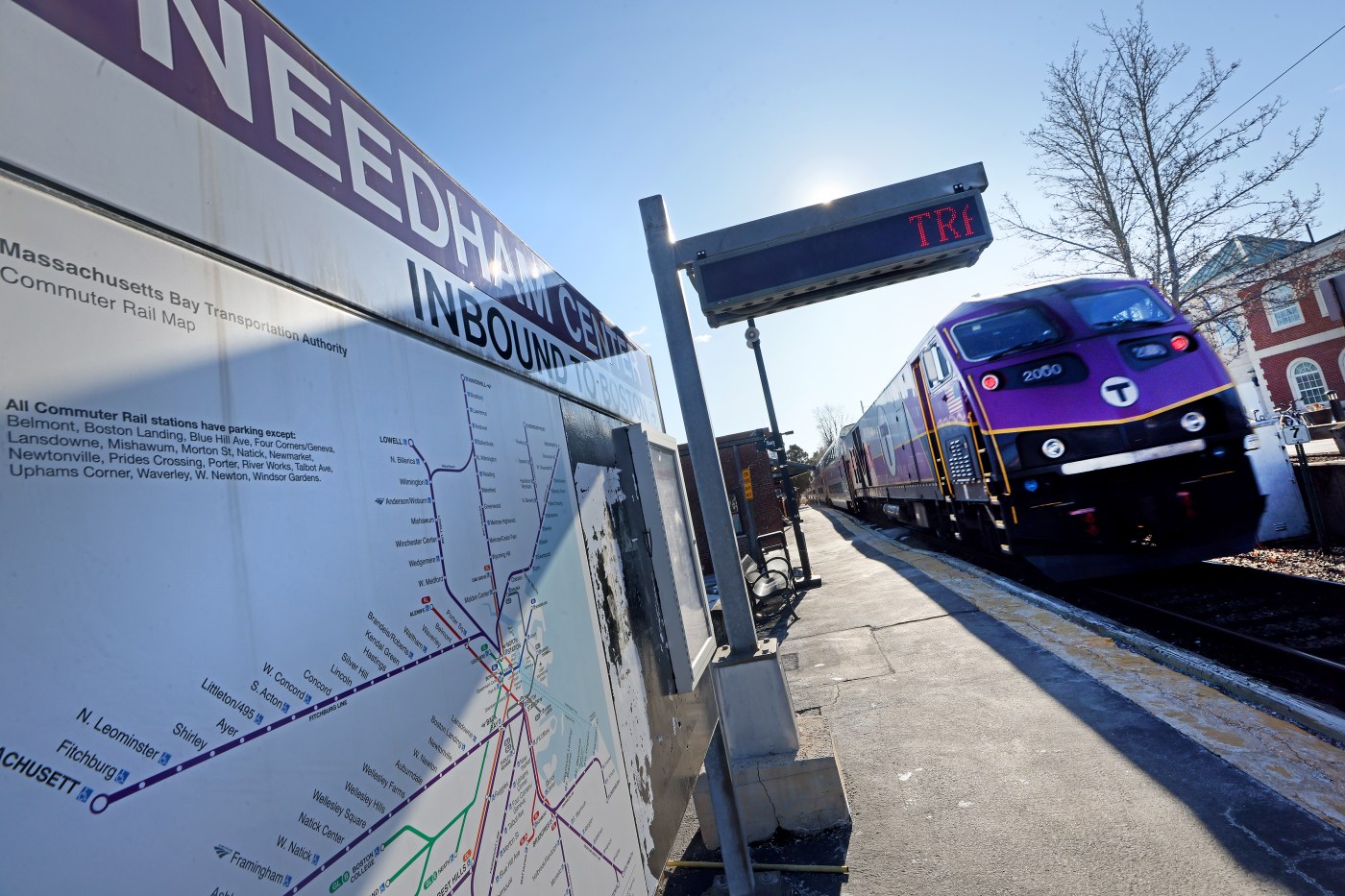
MBTA Communities Act: Needham turns down controversial zoning plan
Needham became the latest Massachusetts suburb to shoot down a controversial state-mandated MBTA zoning plan, but its Select Board chairman says the town won’t follow in Milton’s footsteps.
Needham residents voted Tuesday to repeal zoning that would have made the Greater Boston town compliant with the MBTA Communities Act – a plan that carried much more weight than what the state law requires.
“God bless, Needham, but we have to overachieve,” Select Board Chairman Kevin Keane told the Herald on Wednesday. “Even existing zoning was almost close to what the state is requiring from us so people wanted to try a little flex on it like ‘we could do more.’”
According to the town clerk, 6,904 residents opposed the zoning changes, while 4,914 voted to maintain compliance with the law.
Opposition group Needham Residents For Thoughtful Zoning celebrated the victory with a statement on its website: “People did understand this zoning and they did see, as we did, that it was not thoughtful and could be so much better for Needham.”
Under the law, enacted in 2021, 177 cities and towns across Greater Boston must have at least one zoning district of reasonable size where multifamily housing is permitted as of right. The goal is to trigger more housing to be developed in municipalities served by the MBTA.
Needham has been designated as a commuter rail community, meaning it must develop zoning to allow up to 1,784 multi-family units near public transit.
But Tuesday’s vote sought a substantial increase in that requirement, with a plan calling for zoning to allow up to roughly 3,300 units in key commercial and industrial areas near the town’s commuter rail stations.
The plan received Town Meeting approval last October, but residents in opposition garnered enough signatures in the weeks after to force a referendum to repeal. Opponents have argued they would rather see Needham stick with a base zoning model that resembles what the state seeks.
“In a weird way, it’s a win for Needham,” Keane said via phone Wednesday evening. “We will get there.”
“Oh, God no, we are not Milton,” he added. “I guess we were going for extra credit.”
Keane was referring to how the town of Milton voted last February not to comply with the MBTA Communities Act in a special vote, becoming the first town to refuse to cooperate with the law.
Milton’s reluctance prompted Attorney General Andrea Campbell to sue the town for failing to comply and prevent it from gaining certain state grants. The town’s Select Board chairman at the time called the punishment “unconscionable.”
Campbell received what she described as a “resounding victory for the Commonwealth” last week when the state Supreme Judicial Court ruled that the MBTA Communities Act is both constitutional and enforceable.
The court also ruled the state failed to follow established rules for implementing the law, and that the Executive Office of Housing and Livable Communities must file notices and small business impact statements.
Needham will have to submit a new action plan outlining how it will achieve compliance by Feb. 14 and until the middle of July to hand in a district compliance application. That’s according to new regulations the state housing office issued on Tuesday in response to the SJC’s ruling.
A total of 116 communities have already adopted multifamily zoning districts as a result of the law and more than 3,000 housing units are already in the pipeline to be built in adopted districts, according to the state housing office.
Roughly 30 cities and towns are out of compliance including Duxbury, Gloucester, Hanson, Ipswich, Marshfield, Middleborough, Norton, Raynham and Saugus, among others.
“As disappointing as the vote in Needham is,” advocacy group Citizens’ Housing and Planning Association said in a statement on Wednesday, “the overwhelming trend in Massachusetts is unchanged: cities and towns are consistently giving the green light to more housing because voters know that the future of our commonwealth depends on investing in housing.”
The ‘Yes for Needham’ group favored maintaining the ambitious zoning plan as it encouraged “multi-family development in Needham’s commercial corridor – bringing more varied housing stock for seniors, Needham’s workforce, and young people who wish to return home.”
Proponents also said that the area subject to the plan is “land already zoned for developed uses- business, commercial and existing apartments,” and “12.5% of any housing built will be affordable, with the rest at market rate.”
“The voters have spoken, and while YES for Needham is disappointed with the outcome,” the group stated in a Facebook post, “we look forward to seeing the vision that the Planning Board and Select Board lay out over the coming weeks and months regarding the future of multi-family housing in Needham.”
Massachusetts Attorney General Andrea Campbell (Nancy Lane/Boston Herald, File)

